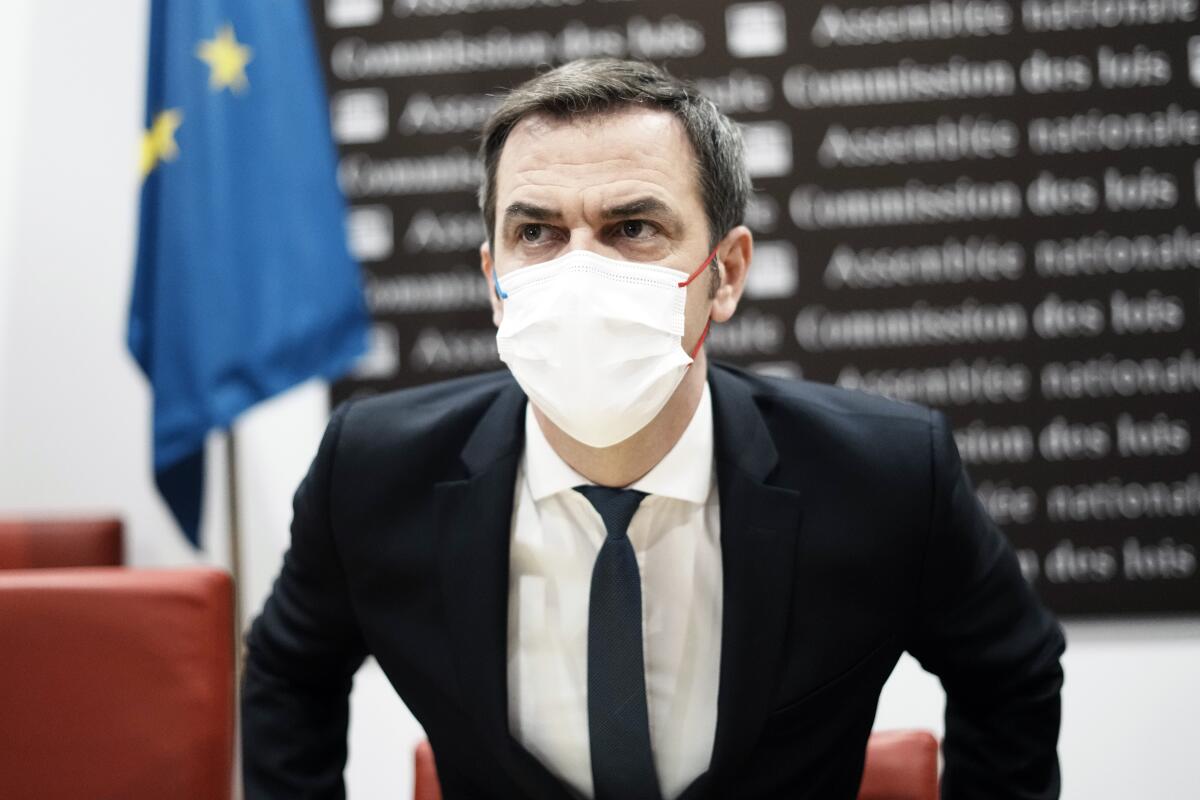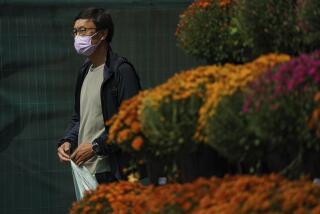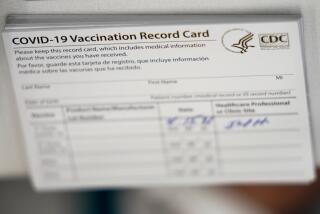France raises pressure on unvaccinated amid record infections

- Share via
PARIS — France’s government is forging ahead with efforts to increase pressure on unvaccinated people to get COVID-19 shots, as the country reported 208,000 new coronavirus cases Wednesday — a record fueled by the Omicron variant.
Health Minister Olivier Veran on Wednesday defended a government plan to allow only the fully vaccinated to enjoy continued access to places such as restaurants, cinemas, theaters, museums, and sports arenas. The pass will also be required on inter-regional trains and buses and domestic flights.
Veran said at a parliamentary hearing that the record number of infections means that more than two French people are testing positive every second for the coronavirus. Veran estimated that about 10% of the French population has been in contact recently with a person infected with the virus.
Speaking to those not vaccinated, he said: “There is really little chance that this time you can escape [COVID-19]: The virus is spreading too fast.” Veran said that in Paris public hospitals, 70% of people hospitalized in intensive care units aren’t vaccinated.
He also advised the most vulnerable people who didn’t get the vaccine booster shot yet to “protect yourself in the coming days. Don’t take risks.”
The speeded-up introduction of the so-called vaccine pass forms part of a government strategy to use vaccinations, rather than new lockdowns, to try to soften the impact of the fast-spreading Omicron variant on already overburdened hospitals.
France has vaccinated 77% of its population and is rushing out booster shots, again to combat Omicron. But more than 4 million adults remain unvaccinated, including more than 1 million people over age 65.
More than 3,400 COVID-19 patients were hospitalized in intensive care units on Wednesday, an increase of 10% over the past week. The figure represents two thirds of ICU beds occupied by people infected with the virus. But the number is lower than during the previous peak in the spring, when about 6,000 COVID-19 patients needed intensive care.
About 170 people die every day from COVID-19 in the country.
The government wants the vaccine pass to be in place by mid-January.
The bill is likely to be voted on quickly in parliament, with President Emmanuel Macron’s party holding a majority at the National Assembly, which has the final say.
If approved, its introduction will mean that unvaccinated people will no longer be able to use negative test results to access places where the vaccine pass is required.
The bill provides for an exception to the pass — notably to take trains and planes — for people with family or health emergencies on condition they are able to present a negative test.
Those who aren’t vaccinated but have a proof of a recent COVID-19 recovery will be able to get a vaccine pass limited to a six-month period following infection.
The sports minister’s office said all France-based athletes will need to be vaccinated to go into sports facilities, yet foreigners who come to the country to participate in an international competition are not subject to the rule.
Instead, they will need to comply with rules for crossing the French border, including daily tests and possibly an isolation period, also depending on their country of origin, the minister’s office said. In addition, a “bubble” environment will be established during major sport events in France to prevent cross-infections between athletes and the outside world.
On Monday, Prime Minister Jean Castex announced a series of new measures to try to curb the spread of the virus. Yet the government stopped short of taking drastic restrictions, like curfews or lockdowns, appearing to be trying to strike a balance between measures needed to relieve hospitals and keep the economy running at the same time.
Starting from next week, big events will be limited to 2,000 people indoors and 5,000 people outdoors. Eating and drinking will be banned in cinemas, theaters, sport facilities and public transportation, including on long-distance routes. Working from home will be mandatory at least three days per week for employees whose job makes it possible.
More to Read
Sign up for Essential California
The most important California stories and recommendations in your inbox every morning.
You may occasionally receive promotional content from the Los Angeles Times.










